“Welcome to the world of holistic healthcare, where the focus shifts from symptom relief to empowering your entire being. Holistic healthcare is more than just a treatment approach – a lifestyle, a mindset, and a journey towards wholeness. In this article, we’ll delve into the definition, principles, and philosophy behind this revolutionary way of thinking, and explore how it can transform your life from the inside out. Let’s embark on this journey together!”
Understanding the Whole Person
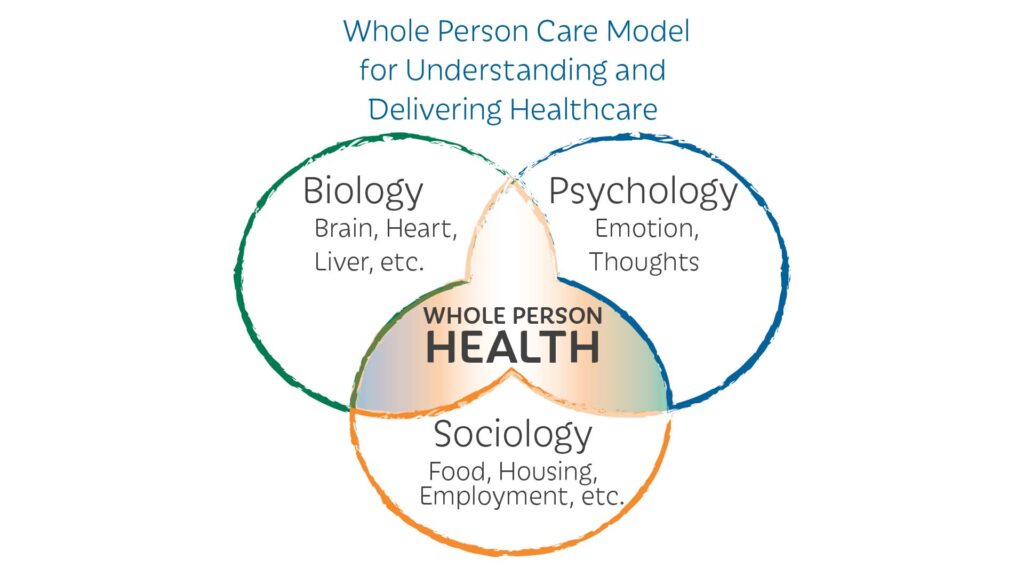
Holistic healthcare recognizes that we are complex beings made up of interconnected physical, emotional, mental, and spiritual aspects. Each aspect influences the others, and neglecting one can affect our overall well-being.
Physical Aspect
Our physical body is our temple, and caring for it is essential. For example, regular exercise like walking or yoga can improve our mood and energy levels. A healthy diet rich in fruits and vegetables can boost our immune system and reduce stress. Holistic Healthcare
Emotional Aspect
Our emotions play a significant role in our overall health. Unresolved emotions like anxiety, anger, or sadness can manifest physically as headaches, digestive issues, or insomnia. Practicing emotional awareness and expression, like journaling or talking to a trusted friend, can help us process and healthily release emotions. Holistic Healthcare
Mental Aspect
Our mind is a powerful tool that can either build us up or tear us down. Negative self-talk, for instance, can lead to low self-esteem and depression. On the other hand, practicing positive affirmations and self-compassion can improve our mental clarity and confidence. Holistic Healthcare
Spiritual Aspect
Our spiritual connection gives us a sense of purpose and meaning. It could be through religion, nature, art, or personal values. Nurturing our spirituality through practices like meditation, prayer, or spending time in nature can bring us a sense of calm and fulfillment. Holistic Healthcare
Real-Life Example
Meet Sarah, a busy working mom who was struggling to balance her responsibilities. She was experiencing physical exhaustion, emotional burnout, and mental fatigue. By incorporating holistic practices like yoga, journaling, and spending time in nature, Sarah was able to reconnect with her physical, emotional, mental, and spiritual aspects. She felt more grounded, focused, and empowered to take care of herself and her loved ones.
Prevention and Self-Care
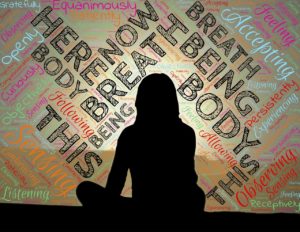
Holistic healthcare emphasizes the importance of prevention and self-care in maintaining our overall well-being. By making conscious lifestyle choices, managing stress, and incorporating wellness strategies, we can prevent illnesses and promote health.
Lifestyle Choices
Our daily habits have a significant impact on our health. For example:
- Eating a balanced diet rich in whole foods and fruits can boost our energy levels and immune system.
- Drinking enough water throughout the day can improve our skin health and cognitive function.
- Getting 7-8 hours of sleep each night can help our body repair and rejuvenate itself.
Stress Management
Stress is a normal part of life, but chronic stress can lead to anxiety, depression, and physical ailments. Effective stress management techniques include:
- Deep breathing exercises to calm our minds and bodies
- Yoga or tai chi to release tension and improve flexibility
- Journaling or talking to a friend to process our emotions
Wellness Strategies
Incorporating wellness strategies into our daily routine can enhance our overall well-being. For example:
- Practicing gratitude by writing down three things we’re thankful for each day
- Taking short breaks to stretch and move our bodies
- Engaging in activities that bring us joy and fulfillment
Real-Life Example
Meet David, a software engineer who was experiencing chronic stress and burnout. By incorporating self-care practices like meditation, walking, and hobbies like painting, David was able to reduce his stress levels and improve his overall well-being. He felt more focused, creative, and energized to tackle his work and personal life.
Natural Therapies

Holistic healthcare embraces a range of natural therapies that work in harmony with the body’s natural healing processes. These alternative approaches focus on treating the whole person, not just the symptoms. Holistic Healthcare
Acupuncture
Acupuncture involves the insertion of fine needles into specific points on the body to restore balance and promote healing. For example, Sarah, a busy entrepreneur, struggled with chronic migraines. After a series of acupuncture sessions, her migraines reduced in frequency and severity, allowing her to manage her business with renewed energy and focus.
Herbalism
Herbalism uses plant extracts to prevent and treat various health conditions. For instance, peppermint tea can soothe digestive issues, while ginger can alleviate nausea and inflammation. Rachel, a new mom, used herbal remedies like chamomile tea and lavender oil to calm her baby’s colic and promote a good night’s sleep. Holistic Healthcare
Homeopathy
Homeopathy is a system of medicine that uses highly diluted substances to treat specific health concerns. For example, a homeopathic remedy like arnica montana can reduce inflammation and bruising after an injury. David, an athlete, used homeopathic arnica gel to speed up his recovery after a marathon, allowing him to get back to training sooner. Holistic Healthcare
Other Alternative Approaches
Other natural therapies like massage, reflexology, and aromatherapy also play a vital role in holistic healthcare. These modalities can reduce stress, improve mood, and enhance overall well-being. For instance, Maria, a cancer patient, found solace in massage therapy, which helped alleviate her pain and anxiety during treatment.
Mind-Body Connection
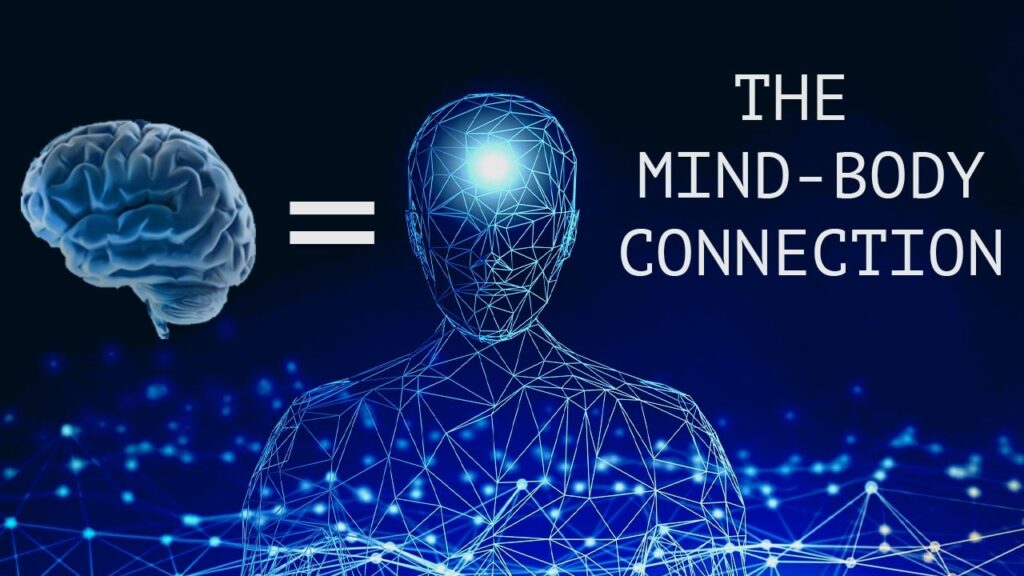
The mind-body connection is a powerful tool in holistic healthcare, recognizing that our thoughts, emotions, and beliefs can impact our physical health. Practices like meditation, yoga, and mindfulness help cultivate this connection, promoting mental and physical well-being.
Meditation
Meditation is a powerful practice that calms the mind, reducing stress and anxiety. Regular meditation can also improve focus, concentration, and overall mental clarity. For example, Emily, a college student, struggled with exam anxiety. After starting a daily meditation practice, she felt more centered and confident, leading to improved grades and a sense of calm during exams.
Yoga
Yoga combines physical postures, breathing techniques, and meditation to promote physical and mental balance. Yoga can reduce chronic pain, improve flexibility, and enhance mood. Rachel, a busy professional, practiced yoga to manage her stress and anxiety. She found that regular yoga practice improved her sleep, energy levels, and overall sense of well-being. Holistic Healthcare
Other Practices
Other mind-body practices like tai chi, qigong, and mindfulness-based stress reduction (MBSR) also foster the mind-body connection. These practices can reduce chronic pain, improve mood, and enhance overall well-being. For instance, David, a veteran, struggled with PTSD. Through MBSR, he learned to manage his symptoms, reduce anxiety, and improve his quality of life. Holistic Healthcare
Real-Life Example
Meet Sophia, a working mom who struggled with stress, anxiety, and chronic back pain. By incorporating meditation, yoga, and mindfulness into her daily routine, Sophia reduced her stress levels, improved her mood, and alleviated her back pain. She felt more energized, focused, and empowered to take care of herself and her family.
Nourishing Body and Soul

Holistic healthcare recognizes the profound impact of nutrition and diet on our overall well-being. Wholesome eating, nutritional supplements, and detoxification practices help our bodies function optimally, boosting energy, vitality, and resilience. Holistic Healthcare
Wholesome Eating
A balanced diet rich in whole foods, fruits, vegetables, and whole grains provides the foundation for optimal health. For example, Maria, a busy professional, switched from processed meals to wholesome cooking and noticed a significant energy boost, improved digestion, and enhanced mental clarity. Holistic Healthcare
Nutritional Supplements
Nutritional supplements like vitamins, minerals, and probiotics can fill nutritional gaps and support specific health needs. For instance, David, an athlete, took omega-3 supplements to reduce inflammation and improve recovery after intense training sessions. Holistic Healthcare
Detoxification
Detoxification practices like juicing, fasting, and herbal cleanses help remove toxins and promote cellular renewal. Sarah, a new mom, did a gentle detox program to shed post-pregnancy weight and regain her energy, feeling revitalized and empowered to care for her baby.
Real-Life Example
Meet Mark, an entrepreneur who struggled with chronic fatigue and digestive issues. By adopting a wholesome diet, taking nutritional supplements, and incorporating detoxification practices, Mark regained his energy, resolved his digestive issues, and felt more focused and productive in his business.
Moving Body, Healing Hands


Holistic healthcare recognizes the profound impact of physical activity and manual therapies on our overall well-being. Exercise, bodywork, and manual therapies like massage and chiropractic care help our bodies heal, repair, and thrive.
Exercise
Regular physical activity improves cardiovascular health, boosts mood, and enhances overall fitness. For example, Rachel, a busy mom, started a yoga practice to manage stress and anxiety. She noticed improved flexibility, balance, and energy levels, feeling more empowered to take care of herself and her family. Holistic Healthcare
Bodywork
Bodywork therapies like massage, acupuncture, and reflexology release tension, improve circulation and promote relaxation. David, an athlete, received regular massages to alleviate muscle tension and improve recovery after intense training sessions. Holistic Healthcare
Manual Therapies
Manual therapies like chiropractic care, osteopathy, and physical therapy help restore alignment, mobility, and function. Sarah, a dancer, sought chiropractic care to address chronic back pain. After a series of adjustments, she experienced an improved range of motion, reduced pain, and enhanced performance.
Real-Life Example
Meet Jack, a construction worker who suffered a work-related injury. Through a combination of physical therapy, massage, and chiropractic care, Jack recovered from his injury, regained strength and mobility, and returned to work with renewed vitality and appreciation for his body’s resilience. Holistic Healthcare
Healing Hearts and Minds

Holistic healthcare recognizes the interconnectedness of our emotional, mental, and physical well-being. Counseling, psychotherapy, and emotional support help us process our emotions, cultivate resilience, and nurture our mental health.
Counseling
Counseling provides a safe space to explore our thoughts, feelings, and experiences. For example, Emily, a college student, sought counseling to cope with anxiety and depression. Through regular sessions, she developed coping strategies, improved her self-esteem, and enhanced her overall mental well-being.
Psychotherapy
Psychotherapy helps us address underlying issues, develop emotional awareness, and improve relationships. David, a businessman, underwent psychotherapy to work through childhood trauma. He gained a deeper understanding of himself, developed emotional resilience, and improved his personal and professional relationships.
Emotional Support
Emotional support from loved ones, support groups, or online communities helps us feel seen, heard, and validated. Rachel, a new mom, joined a postpartum support group to cope with the challenges of motherhood. She found comfort, connection, and practical advice from fellow moms who understood her journey.
Real-Life Example
Meet Sophia, a survivor of domestic abuse who struggled with PTSD and anxiety. Through counseling, psychotherapy, and emotional support from loved ones, Sophia healed from her trauma, regained her confidence, and found the courage to share her story and support others.
Spiritual Awakening

Holistic healthcare recognizes the profound impact of spiritual growth and development on our overall well-being. Meditation, mindfulness, and connection to something greater help us cultivate inner peace, purpose, and meaning.
Meditation
Meditation practice calms the mind, awakens inner wisdom, and fosters a sense of connection. For example, Mark, a busy executive, started a daily meditation practice to reduce stress and improve focus. He experienced increased clarity, creativity, and a deeper sense of purpose.
Mindfulness
Mindfulness practices like yoga and tai chi cultivate present-moment awareness, balance, and harmony. Sarah, a cancer survivor, found solace in mindfulness practices, which helped her cope with uncertainty, cultivate gratitude, and find joy in everyday moments.
Connection to Something Greater
Connection to a higher power, nature, or a sense of purpose gives life meaning and direction. David, a recovering addict, found strength in his faith and support from a spiritual community, which helped him stay sober and rebuild his life.
Real-Life Example
Meet Leila, a young woman who struggled with anxiety and depression. Through meditation, mindfulness, and a deepening connection to her spiritual practice, Leila found inner peace, purpose, and a sense of belonging. She began volunteering at a local mental health organization, sharing her story to inspire hope and healing in others.
Integrative Medicine: The Best of Both Worlds
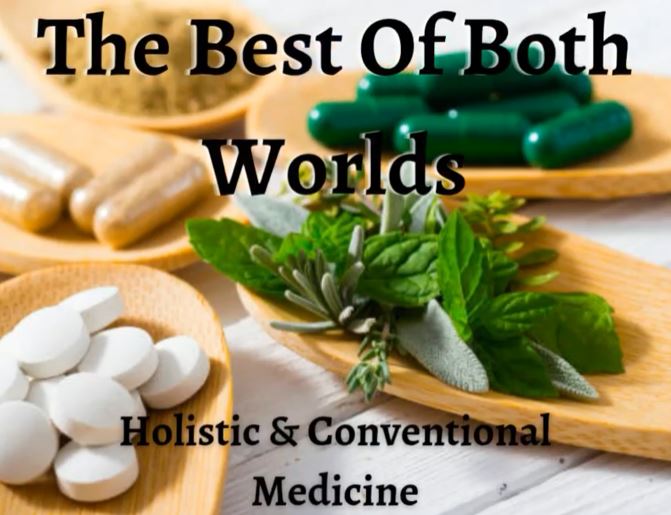
Holistic healthcare combines conventional and alternative approaches to provide comprehensive care that addresses the whole person – body, mind, and spirit.
Combining Conventional and Alternative Approaches
Integrative medicine combines the strengths of conventional medicine with the wisdom of alternative therapies. For example, a patient undergoing chemotherapy may also receive acupuncture to manage side effects and improve quality of life.
Real-Life Example
Meet Jane, a breast cancer survivor who underwent conventional treatment followed by holistic therapies like massage, meditation, and herbal remedies. She credits integrative medicine with helping her recover faster, manage pain and anxiety, and regain her energy and vitality.
Personalized Care
Integrative medicine recognizes that each individual is unique, with distinct needs and circumstances. Practitioners work with patients to create personalized plans that blend conventional and alternative approaches. For instance, a patient with chronic pain may receive a combination of physical therapy, chiropractic care, and mindfulness coaching.
Empowering Patients
Integrative medicine empowers patients to take an active role in their healthcare journey. By combining conventional and alternative approaches, patients can make informed decisions about their care, explore new treatment options, and enjoy a more holistic approach to wellness.
Finding the Right Care: Tips for Selecting a Qualified Practitioner or Center
As you embark on your holistic healthcare journey, it’s essential to find a qualified practitioner or center that resonates with your needs and values.
Research and Referrals
Ask friends, family, or healthcare professionals for recommendations. Research online, checking credentials, certifications, and reviews. For example, Sarah asked her yoga instructor for a referral to a reputable acupuncturist and found a skilled practitioner who helped her manage chronic pain.
Check Credentials
Verify licenses, certifications, and training in the specific modality. For instance, a licensed massage therapist or a board-certified naturopathic doctor. Rachel checked her chiropractor’s credentials and felt confident in his expertise.
Personal Connection
Find someone who listens, understands, and respects your unique needs. Jane sought a therapist who shared her values and experienced a profound healing journey.
Center or Clinic
Consider the center’s reputation, cleanliness, and staff expertise. Mark chose a reputable integrative medicine center for his cancer treatment and appreciated the comprehensive care.
Trust Your Instincts
Ultimately, choose a practitioner or center that resonates with you. Your intuition is a powerful guide in finding the right fit for your holistic healthcare journey.

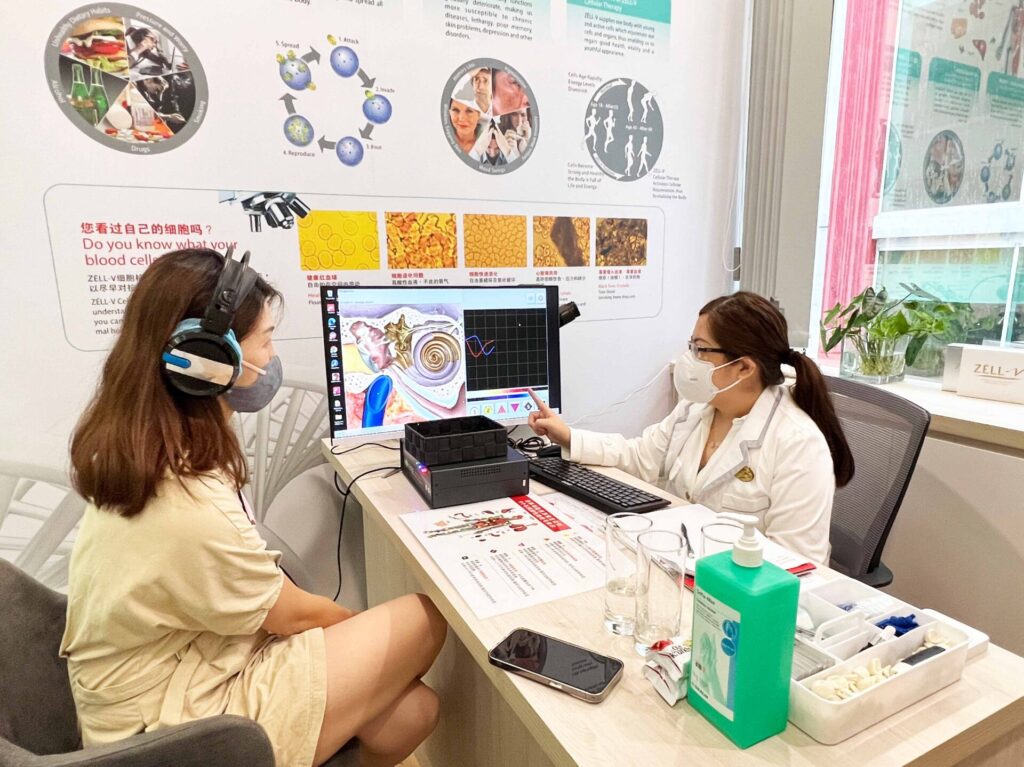
Pingback: Natural Therapies - aitechverge.com